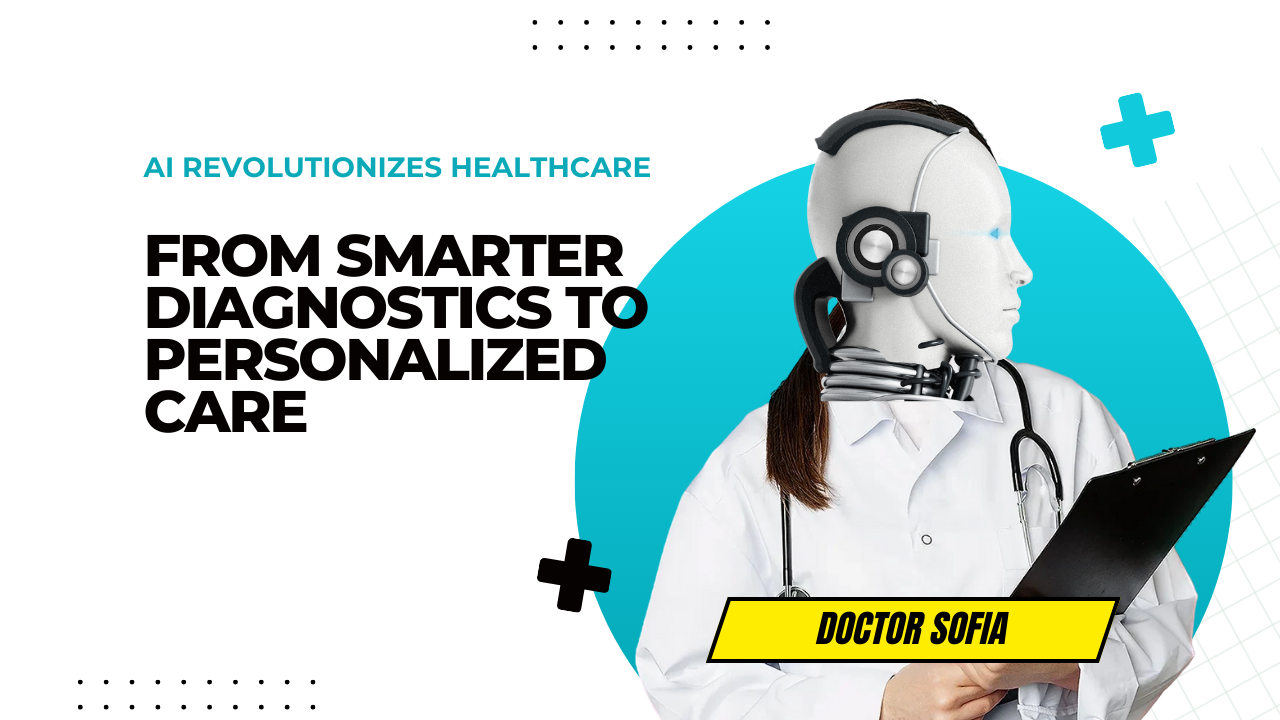The world of medicine is undergoing a remarkable transformation fueled by artificial intelligence (AI). This powerful technology is no longer the stuff of science fiction; it’s actively being used in hospitals and clinics around the world to improve patient care. Let’s delve into the exciting ways AI is making a difference in healthcare:
1. Unveiling Diseases with Sharper Eyes: AI-powered Diagnostics
Imagine a future where doctors have a powerful AI assistant scrutinizing medical scans alongside them. This is no dream! AI algorithms are being trained on vast datasets of medical images like X-rays, mammograms, and MRIs. This allows them to identify patterns and subtle anomalies that might escape the human eye.
For instance, AI can be instrumental in early cancer detection. By analyzing mammograms, AI can pinpoint suspicious areas with high accuracy, potentially leading to earlier diagnoses and better treatment outcomes. Similarly, AI is being used to detect other diseases like diabetic retinopathy and lung cancer at earlier stages.
2. Tailoring Treatments: The Rise of Personalized Medicine
One-size-fits-all approaches to medicine are becoming a thing of the past. AI is paving the way for personalized medicine, where treatment plans are customized based on an individual’s unique genetic makeup, medical history, and lifestyle.
Here’s how AI is playing a role: By analyzing a patient’s medical data, AI can predict how they might respond to different medications. This allows doctors to tailor treatment plans with a higher chance of success and minimize the risk of adverse reactions. Additionally, AI can help identify patients at high risk for developing certain diseases, enabling preventive measures to be taken proactively.
3. From Assisting Surgeons to Performing Procedures: The Cutting Edge of AI Surgery
The world of robotics is rapidly merging with AI, leading to advancements in minimally invasive surgery. AI-powered surgical robots can assist human surgeons with incredible precision and stability. These robots can hold instruments, suture wounds, and even filter out tremors in a surgeon’s hands.
The future of AI surgery holds even more promise. Imagine robots performing complex procedures with minimal scarring and faster recovery times for patients. While human oversight will always be crucial, AI has the potential to revolutionize the field of surgery.
However, it’s important to remember that AI is a tool, not a replacement for human doctors. The human element of care, empathy, and critical thinking will always be essential. AI is here to augment the capabilities of healthcare professionals, leading to a future of better diagnoses, more effective treatments, and ultimately, improved patient outcomes.
Challenges and Considerations for AI in Healthcare
While the potential of AI in healthcare is undeniable, there are challenges and considerations that need to be addressed:
- Data Privacy and Security: AI relies heavily on vast amounts of patient data. Robust data security measures are crucial to ensure patient privacy is protected.
- Ethical Considerations: As AI plays a bigger role in medical decision-making, ethical questions arise. Biases in the training data can lead to biased algorithms, potentially impacting patient care. Transparency and fairness need to be prioritized in AI development.
- Regulation and Oversight: Regulatory frameworks need to adapt to ensure the safe and effective implementation of AI in healthcare. Establishing clear guidelines and oversight mechanisms is crucial.
- Human Expertise Remains Paramount: AI should not replace the irreplaceable skills of doctors and nurses. The human element of care, empathy, and critical thinking will always be essential. AI should be seen as a tool to augment human expertise.
The Future of AI in Healthcare: A Brighter and Healthier Tomorrow
Despite the challenges, the future of AI in healthcare is undeniably bright. As AI technology continues to evolve and integrate seamlessly into healthcare systems, we can expect even more advancements:
- Drug Discovery and Development: AI can analyze vast datasets to identify potential drug targets and accelerate the development of new therapies.
- Remote Patient Monitoring: AI-powered wearables and sensors can continuously monitor patients’ health, enabling early detection of potential problems and facilitating remote care.
- Improved Healthcare Accessibility: AI can bridge the gap in healthcare access, particularly in remote areas, by offering virtual consultations and AI-powered diagnostics.
By embracing AI responsibly and ethically, we can build a healthcare system that is more efficient, accurate, and personalized, ultimately leading to a healthier future for all.
